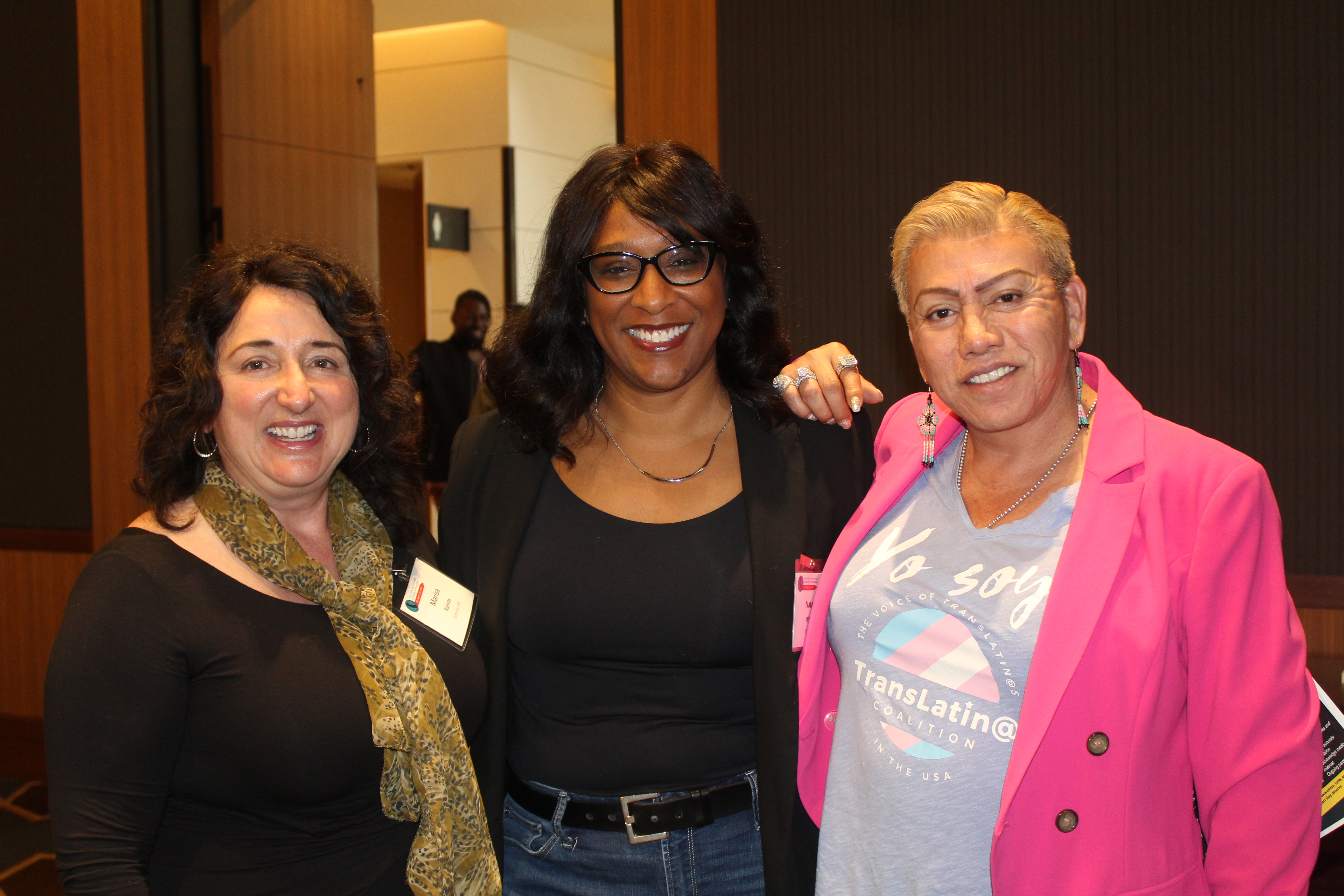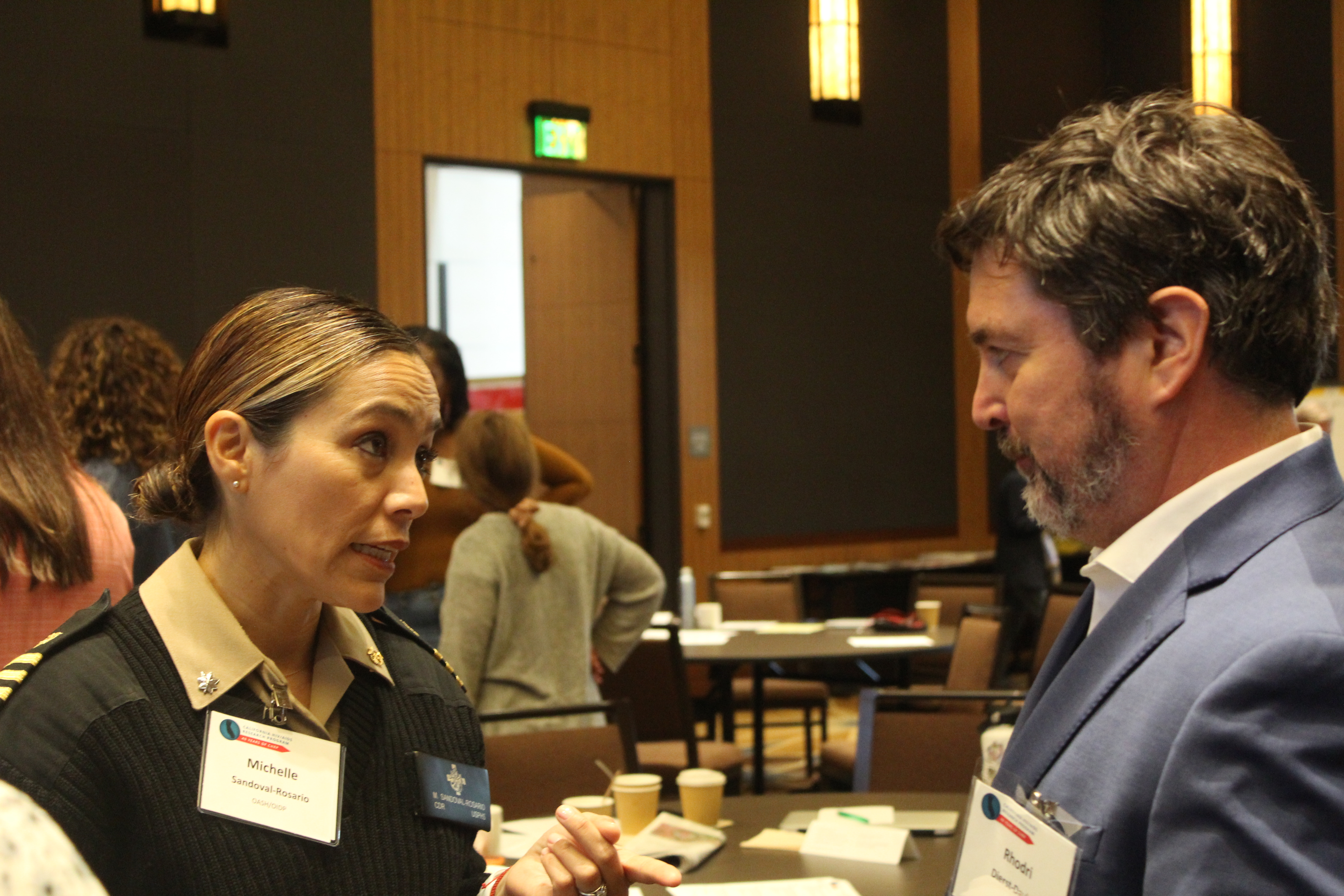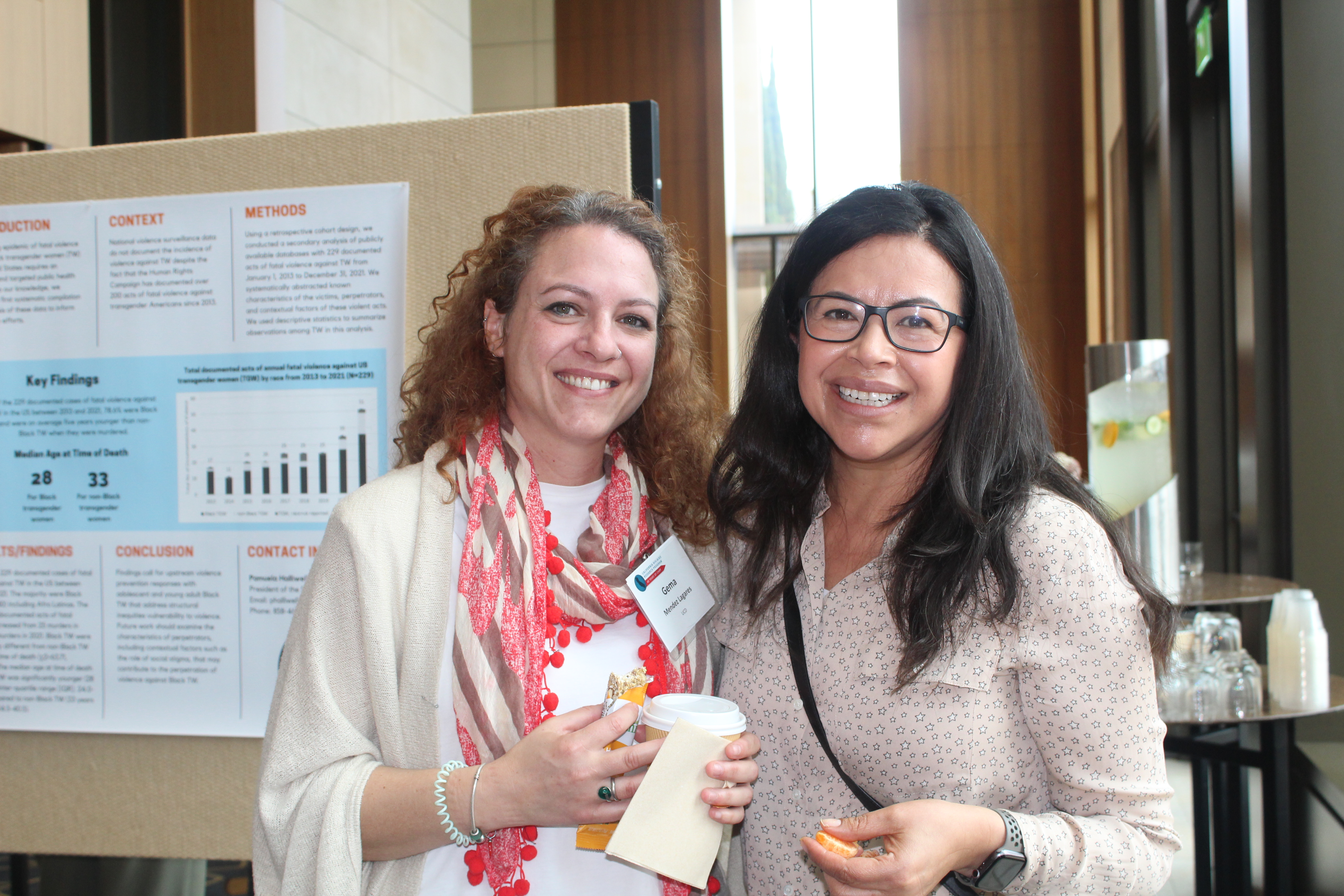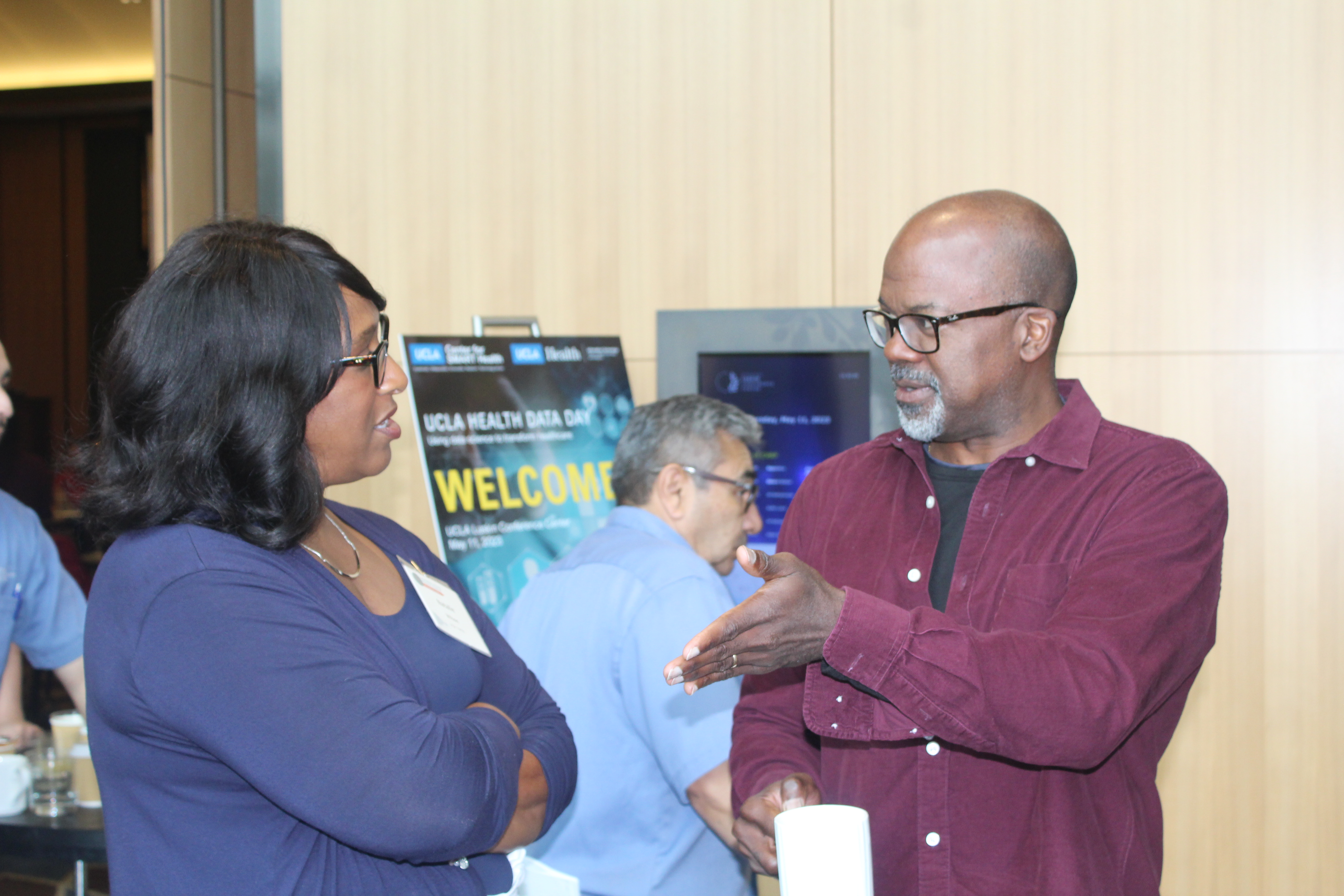CHRP News
Celebrating Eight New CHRP Researchers
April 1, 2024: As part of our commitments to both increasing equity in our grantmaking and seeding the pipeline of the next generation of HIV researchers, CHRP announces $80,000 in new awards to support mentored training for eight early career-stage HIV researchers in California. Each of these researchers have lived experience in at least one of our priority communities (often three or more), and each is committed to serving these communities going forward. We celebrate the accomplishments of these eight dedicated researchers, and are grateful for the opportunity to fulfill the community mandate of “nothing about us without us”. These exciting projects will focus on resilience factors, housing insecurity, the California Healthy Youth Act, intimate partner violence, PrEP, and more; they will serve communities such as Latinx people with newly diagnosed HIV, transgender women of color, asylum seekers, youth, and internet-based sex workers. More details about the researchers and the work that CHRP will fund them to do will be posted here later this spring.
CHRP Invests $13 Million Across Sixteen Newly Funded HIV Research Projects
December 11, 2023: The California HIV/AIDS Research Project (CHRP), the only publicly funded HIV research grantmaking program in the country, is awarding approximately $13,000,000 to launch a broad range of new projects, in four areas: Measuring the Impact of Racism on the HIV Epidemic in California; Community-Centered Demonstration Projects to Support Implementation of Long-Acting Injectable PrEP Adoption Across California; Social and Behavioral Intervention Pilot Studies to Support HIV Prevention and Care; and Basic Biomedical and Translational Science Pilot Studies. These awards span all stages of HIV research, from the bench (epigenetic modulation of anti-HIV gene therapy) to the street (providing HIV prevention services via mobile vans to reach historically excluded communities).
CHRP continues to prioritize seeding the pipeline of HIV researchers: ten of the sixteen funded Principal Investigators are early career stage investigators, and this is their first major grant. Congratulations to these outstanding scientists! Information on the individual awards is on our Funded Research Page, under Active Grant Portfolios.
CHRP May Grantee Meeting
In May 2023, CHRP held a two-day meeting to celebrate our 40th Anniversary, highlight our current funded research projects, and plan for the future. More than 150 grantees, community partners, government officials, CHRP Advisory Council members, students, and advocates attended. Day 1 was an opportunity for all current grantees to provide project updates across the entire CHRP portfolio. Day 2 included keynotes from governmental and academic leaders on partnerships and structural determinants of health, panel discussions on strategy and collaboration, talks about building and sustaining our HIV research workforce, and a working session to develop ideas for how CHRP can support the California Ending the Epidemic(s) strategy. The meeting was held at the Luskin Conference Center on the UCLA Campus; click HERE to view the agenda.
CHRP Welcomes Shoshanna Nakelsky
June 5, 2023: CHRP is thrilled to welcome Shoshanna Nakelsky to our team as a Program Officer. Ms. Nakelsky comes to CHRP with over 20 years of experience in research, program management, evaluation, and program development within the field of HIV and STIs. For the past 17 years she served as an epidemiologist for the Los Angeles County Department of Public Health, Division of HIV and STD Programs, where she led monitoring and evaluation for all biomedical HIV prevention services. Previously she managed LA County’s HIV Incidence Surveillance Program, as well as multiple CDC and state-funded research studies, all focused on improving the lives of HIV impacted and at-risk populations. During COVID she used her extensive knowledge of epidemiology and disease surveillance by serving as a manager for the LA County Contact Tracing Program. Shoshanna is a part-time lecturer of Public Health at Cal State Northridge, and has been a tireless advocate for issues impacting the HIV community both professionally and personally for many years.
$1.4 Million Grant to Bolster ‘Powerful Collective’ Advocating for BIPOC Transgender Sex Workers
UCLA’s Hub for Health Intervention, Policy and Practice (HHIPP) has been awarded a $1.4 million grant to strengthen and support its efforts to unite sex workers and their advocates with academic investigators, health care providers and social services agencies. Over a four-year period, the grant will benefit research and community-based programming for Sex Work LEARN (Lived Experience Affirming Research Network), a multisector alliance that does not presume sex work is a problem to be solved. The project will focus on transgender women with sex work experience who identify as Black, indigenous or other persons of color.
Principal investigator Ayako Miyashita Ochoa said she is “thrilled to be working with” co-principal investigators Sophia Zamudio-Haas of UC San Francisco and Bamby Salcedo, a leader in the transgender rights movement and president of TransLatin@ Coalition. Other community partners are the Unique Woman’s Coalition and Sex Workers Outreach Project Los Angeles (SWOP LA). “I couldn’t be more proud of our research group and am so appreciative that UCLA Luskin will now serve as a home for this powerful collective,” Miyashita Ochoa said. Funding is from the California HIV/AIDS Research Program, which is awarding similar grants this year to four other research projects in California that center the voices of people affected by HIV.
CHRP Welcomes Dr. Rhodri Dierst-Davies
October 3, 2022: Dr. Rhodri Dierst-Davies has joined CHRP as Director and Health Equity Lead. Dr. Dierst-Davies received both a PhD in Public Health, and MPH in epidemiology, from the University of California, Los Angeles. Trained as a behavioral epidemiologist and research methodologist, Dr. Dierst-Davies has spent a career supporting and managing novel research and program evaluation studies at university, government, and non-profit organizations, as well as in the private sector. While his primary field of interest has been HIV/AIDS, he has also managed projects in the areas of substance use, health services, health policy, health economics, disaster preparedness, and military health.
Dr Dierst-Davies began his public health career as a volunteer HIV test counselor for UCSF for what was then the AIDS Healthcare Project. Prior to this appointment he worked in the private sector for Deloitte Consulting LLP. There he oversaw multi-million-dollar research and evaluation projects for federal agencies such as the CDC, USAID, PEPFAR, FEMA, and DoD. Notable projects included an economic analysis of HIV services in Ukraine to support modernization of the country’s response efforts for USAID, testing new near-real-time data collection modalities that supported COVID-19 school re-opening efforts for the CDC; program development and evaluation services to support clinic-based diabetes care in Mexico; and overseeing multiple evaluations of health service programs at military treatment facilities for the DoD.
In addition, Dr. Dierst-Davies worked for seven years as an epidemiologist for the Los Angeles County Department of Public Health, Division of HIV and STD Programs. There he supported CDC-funded HIV research, managed demonstration projects and program development efforts, and led evaluations of HIV service programs all with the goal of improve healthcare access and service delivery for vulnerable HIV-infected and at-risk populations. Prior to this he worked as a behavioral researcher testing innovative interventions in the field of substance use.
His passion for public health, diverse experience working effectively with policy makers and advocates, and HIV science expertise make him an effective spokesperson for CHRP and HIV research in California.
Featured JAIDS Supplement Highlights CHRP’s Ongoing Commitment Toward Health Equity
The December 2021 special issue of JAIDS highlights the importance of intentional and targeted health equity interventions that address different needs and preferences of diverse underserved populations in HIV research. Adopting a cross-sector framework of community engagement and collaboration with unequivocal goals of diversity, equity, and inclusion at both the planning and implementation stage helps move us all toward ending the HIV epidemic, together.
2022 Call for Applications Release
On April 2, 2022, CHRP released our Call for Applications for the 2022 cycle. Please see our Funding Opportunities page for more information.
2021 Call for Applications Release
On April 2, 2021, CHRP released our Call for Applications for the 2021 cycle, to support exceptionally innovative pilot studies of early-stage basic biomedical HIV research. Please see our Funded Research page for more information.
California HIV/AIDS Research Program Awards $2.4 Million to Local Researchers with Basic Biomedical Discovery Initiative
December 5, 2019: CHRP awarded nine new grants to researchers at non-profit institutions across the state. More information about these project is available here.
Focus on Youth Living with HIV: Food insecurity and depression impair treatment adherence; telehealth counseling with youth can help
December 5, 2019: Drs. Parya Saberi and Carol Dawson Rose and their team are in the fourth year of their CHRP HIV and Health Disparities award and have already published four manuscripts from their research with youth living with HIV (YLWH). Read the full story here.
Basic Biomedical Sciences Discovery Initiative 2019
We awarded nine grants to researchers at non-profit institutions across the state. These pilot awards supported early-stage laboratory explorations aimed at understanding mechanisms of HIV prevention, treatment, or cure at the cellular or subcellular level. More information here.
New California-Based Funding for Research on Rapid Initiation of HIV Treatment and Big Data HIV Surveillance
April 17, 2018: CHRP funded four projects in our latest initiative, One Step Ahead: An Open Call for Highly Visionary Investigator-Initiated HIV Research in California. The four awards have a combined funding total of $7.5 million over a four-year period, and each takes a different approach to addressing an important aspect of the HIV epidemic. Learn about each of the funded projects here.
California HIV/AIDS Research Program Cure Initiative special issue in AIDS Research and Human Retroviruses.
November 15, 2017: We are pleased to release an open access special issue on our Cure Initiative in the journal AIDS Research and Human Retroviruses. Access all the articles here.
CHRP's TransPrEP! Project: HIV Prevention by and for the Transgender Community in California
November 13, 2017: The California HIV/AIDS Research Program (CHRP) is proud to be funding the largest demonstration project of its kind in the U.S., to determine the efficacy, acceptability, and pharmacokinetics of HIV pre-exposure prophylaxis (PrEP) medication among transgender persons. CHRP has invested $9.4 million in three research studies across the state, recognizing that the people in the transgender community deserve dedicated and substantial resources to promote their health and protect their lives. The studies each use different techniques, such as providing PrEP and hormonal therapy together at a single clinic visit, or an in-depth pharmacokinetic analysis to determine whether the two treatments interact, or a custom text messaging app to communicate with providers and peer support. In the video, researchers, consumers, and health care providers offer their perspectives on why this research is important, and how members of the community can participate. View the video here.
June 26,2017: Sprinkled among every community are people who seem to know everyone. Influential and connected, they're the nexus of large and invisible social circles. Those are the people, realized Dr. Amy Rock Wohl, who may be able to help slow the spread of HIV in hard-to-reach populations – by linking their friends to care.
“Drink Like a Barman” for Better Sexual Health?
December 14, 2016: When bars offered self-service drinking water, breathalyzers showed lower blood alcohol content among patrons. Results could help HIV prevention efforts.
New Report Examines Annual PrEP Costs Through Covered California
November 1, 2016: The Southern California HIV Policy Research Center today released a new policy brief that will help consumers better understand the cost of accessing pre-exposure prophylaxis (PrEP) through Covered California health plans. Open enrollment for Covered California, the State’s health insurance marketplace, begins today.
The California HIV/AIDS Policy Research Centers Announce Inaugural Policy Research Fellows Program
November 1, 2016: The Fellows Program provides policy research training and education to individuals who are affiliated with HIV/AIDS community-based organizations in California that serve people living with or populations disproportionately affected by HIV/AIDS. The two-year fellowship program will increase the capacity of community-based organizations to address the HIV epidemic in California by shaping public policy.
September 12, 2016: Majority of participants in a statewide survey were interested in taking PrEP, but less than 10% had ever used it; black and Latino men faced more barriers to accessing PrEP
"The homeless young man is the most unlikely of HIV educators..."
June 28, 2016: CHRP announcess disparities grants
Including Robyn: Does HIV PrEP help transgender people?
April 25, 2016: UC launches first culturally-appropriate PrEP demonstration project in the U.S.
An HIV prevention pill for transgender persons: UC launches three trials
April 25, 2016: UC launches first in the nation demonstration project
New patient care model reduces hospital re-admission rates
May 5, 2014
A demonstration project aimed at improving patient care for people with HIV and AIDS has reduced the number of hospital re-admissions at one Bay Area hospital by 44 percent. The new approach puts primary care physicians at the helm of an integrated care team that includes social workers, psychologists and medical specialists. These collaborative teams form virtual "patient-centered medical homes" that work together to ensure that patients come to appointments, take their medications and get the care they need.
Harm-reduction program optimized HIV/AIDS prevention, USCF study shows
April 18, 2014
New research from UC San Francisco and the San Francisco AIDS Foundation has found that clients participating in a harm-reduction substance use treatment program, the Stonewall Project, decrease their use of stimulants, such as methamphetamine, and reduce their sexual risk behavior.
HIV: New East Bay program gives prevention pill to high-risk youths
July 15, 2013
The number of people nationwide who are newly infected with HIV, the virus that can cause AIDS, has held steady at about 50,000 annually in recent years after dropping sharply in the late 1980s, despite health professionals' best efforts to tackle the problem. "There is a degree of frustration -- we don't seem to be able to reduce the level of transmission," said George Lemp, director of the California HIV/AIDS Research Program. "A lot of people felt that we needed more aggressive approaches." The program will award $18 million in grants over four years to teams in Oakland, Los Angeles and San Diego to test a new approach that includes distributing Truvada to high-risk groups.
East Bay Renew Efforts To Reduce HIV Infection
June 20, 2013
Oakland is ground zero for an ambitious effort aimed at reducing the rate of HIV infection in young gay men of color. Clinical trials are underway of an FDA-approved therapy for prevention of HIV infection. Since January of 2010 the Downtown Youth Clinic has kept busy. The daily anti-retroviral medication is Truvada by Gilead, which was approved last year by the FDA. The California HIV/AIDS research program is funding the service.
2012 Journal publications from CHRP-funded research (pdf)
Researchers identify possible key to slow progression toward AIDS
September 19, 2012
One of the big mysteries of AIDS is why some HIV-positive people take more than a decade to progress to full-blown AIDS, if they progress at all. Even among those with the B57 gene, the speed of disease progression can vary considerably. Now, a group of investigators from the Multi-Center AIDS Cohort Study (MACS), housed within the UCLA AIDS Institute, may have uncovered the key to this variation.
California to test HIV-prevention pill
April 17, 2012
California will test an HIV-prevention pill in an attempt to slow the spread of the disease in the state. The pill, which is already used to treat HIV patients, will be prescribed to 700 gay and bisexual men and transgender women in Los Angeles, San Diego and Long Beach who are high-risk but not infected. "With this new prevention pill, we have another intervention to put in the arsenal to try and impact this epidemic," said George Lemp, director of the California HIV/AIDS Research Program with the UC president's office.
Considering TLC+ In California: Proceedings of a Think Tank on HIV Testing, Linkage to Care, Plus Treatment
Nov. 10, 2010
In May 2010, the California HIV/AIDS Research Program (CHRP) and the California Coalition of Local AIDS Directors (CCLAD) co-sponsored a statewide think tank called Considering TLC+ in California. The specific goals of TLC+ (Testing and Linkage to Care Plus Treatment) are twofold: to increase the number of HIV-positive people who know their serostatus and are engaged in care and treatment to improve their individual health outcomes and to reduce the incidence of HIV infection.
Sixty-four planners, policymakers, treatment and care providers attended the meeting. TLC+proceedings report (pdf)










